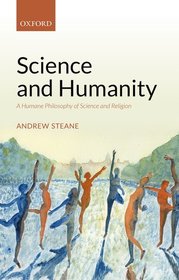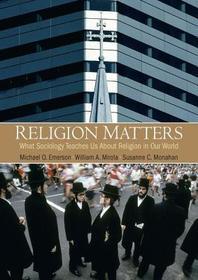
Science and Humanity
A Humane Philosophy of Science and Religion
-
10% KEDVEZMÉNY?
- A kedvezmény csak az 'Értesítés a kedvenc témákról' hírlevelünk címzettjeinek rendeléseire érvényes.
- Kiadói listaár GBP 35.99
-
17 761 Ft (16 915 Ft + 5% áfa)
Az ár azért becsült, mert a rendelés pillanatában nem lehet pontosan tudni, hogy a beérkezéskor milyen lesz a forint árfolyama az adott termék eredeti devizájához képest. Ha a forint romlana, kissé többet, ha javulna, kissé kevesebbet kell majd fizetnie.
- Kedvezmény(ek) 10% (cc. 1 776 Ft off)
- Kedvezményes ár 15 985 Ft (15 224 Ft + 5% áfa)
Iratkozzon fel most és részesüljön kedvezőbb árainkból!
Feliratkozom
17 761 Ft

Beszerezhetőség
Megrendelésre a kiadó utánnyomja a könyvet. Rendelhető, de a szokásosnál kicsit lassabban érkezik meg.
Why don't you give exact delivery time?
A beszerzés időigényét az eddigi tapasztalatokra alapozva adjuk meg. Azért becsült, mert a terméket külföldről hozzuk be, így a kiadó kiszolgálásának pillanatnyi gyorsaságától is függ. A megadottnál gyorsabb és lassabb szállítás is elképzelhető, de mindent megteszünk, hogy Ön a lehető leghamarabb jusson hozzá a termékhez.
A termék adatai:
- Kiadó OUP Oxford
- Megjelenés dátuma 2018. július 12.
- ISBN 9780198824589
- Kötéstípus Keménykötés
- Terjedelem302 oldal
- Méret 223x148x22 mm
- Súly 546 g
- Nyelv angol 0
Kategóriák
Rövid leírás:
For the general educated reader, this book presents the nature of the physical world, the role of well-motivated religious response.
TöbbHosszú leírás:
Andrew Steane reconfigures the public understanding of science, by drawing on a deep knowledge of physics and by bringing in mainstream philosophy of science. Science is a beautiful, multi-lingual network of ideas; it is not a ladder in which ideas at one level make those at another level redundant. In view of this, we can judge that the natural world is not so much a machine as a meeting-place. In particular, people can only be correctly understood by meeting with them at the level of their entire personhood, in a reciprocal, respectful engagement as one person to another. Steane shows that Darwinian evolution does not overturn this but rather is the process whereby such truths came to be discovered and expressed in the world. From here the argument moves towards other aspects of human life. Our sense of value requires from us a response which is not altogether the same as following logical argument. This points us towards what religion in its good forms can express. A reply to a major argument of David Hume, and a related one of Richard Dawkins, is given. The book finishes with some brief chapters setting religion in the context of all human capacities, and showing, in fresh language, what theistic religious response is, or can be, in the modern world.
Steane brings to his project a compelling combination of scientific expertise, fine theological instincts, and clear, honest philosophical argument. He also brings considerable literary inventiveness: Science and Humanity is a rigorous scholarly monograph leavened with bursts of lyrical prose and poetry ... Steane's writing is often passionate and moving, as well as consistently lucid and precise. And there is a deep coherence in this eccentric, important book ... [Steane's] own humane, searching intelligence is the strongest witness of the graceful symmetries investigated in Science and Humanity.
Tartalomjegyzék:
Introduction
Part I: Science and philosophy
Light
The structure of science, part 1
The structure of science, part 2
Logic and knowledge: the Babel fallacy
Reflection
Purpose and Cause
Darwinian evolution
The tree
What science can and cannot do
What must be embraced, not derived
Religious language
The Unframeable Picture
A farewell to Hume
Drawing threads together
Extraterrestrial life
Does the universe suggest design, purpose, goodness or concern?
Part II: Breathing
Silence
The human community
Encounter
The human being
Witnessed to






